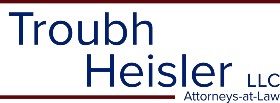The Maine Worker’s Compensation Board Appellate Division has just issued a decision affirming the legal limits on an employer’s duty to reimburse an employee’s rehabilitation plan expenses and to pay employee’s attorney’s fees related to that effort. The decision also affirmed that a motion to reopen evidence requires that the evidence be “newly discovered” and not discoverable by due diligence before the payment scheme was initiated.
In Scott Richards v. DP industries, Mr. Richards injured his back, wrist and elbow when he fell at work in 2001, requiring significant work restrictions. The Maine Department of Labor’s Division of Rehabilitation Services developed a rehabilitation plan, which DP declined to fund. Mr. Richards filed a Petition to Determine Entitlement to Rehabilitation Services pursuant to §217. The plan sought almost $9000 for equipment, training and counseling, but at hearing Mr. Richards testified and presented documentary support that his actual expenses were $15,000. Hearing Officer Dunn approved the plan but ordered the Employment Rehabilitation Fund to pay only the $9000 as indicated in the plan.
Mr. Richards requested further findings of fact and conclusions of law, together with a request for an order that DP pay his attorney’s fees and reopen the evidence. HO Dunn provided further findings, but he denied the requests for attorney’s fees and reopening the evidence, as the employee’s attorney did not qualify for that fee under the Act. Mr. Richards appealed, but the Appellate Division affirmed HO Dunn’s decision in its entirety.
The Appellate Division panel held that, before the development of the rehabilitation plan, the employee had spent $5000 to buy a business. The panel, citing its own 2015 Deroche decision, held that §217 does not provide for reimbursement to an employee for costs he incurred before the development of a rehabilitation plan. Mr. Richards’ attorney tried to collect fees and costs from the $9000, but the panel affirmed that the rehabilitation money was not a “common fund” shared by the attorney, so he could not extract a fee from it under §325. Finally, the panel affirmed HO Dunn’s denial of Mr. Richards’ petition to reopen the evidence under §319, holding that HO Dunn properly concluded that Mr. Richards had not met the statutory criteria.
If you have any questions, please let us know.
Thomas Getchell
Daniel Gilligan
Michael Richards
Attorneys at Law
